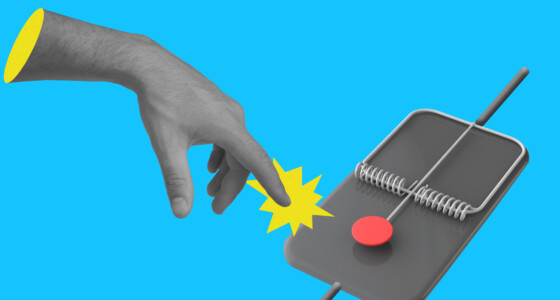

Newbie traders might think of trading as a way to make additional income, but veterans in the field often view it as a full-time job.
But not everybody can succeed in a career in trading; it takes plenty of time, studying, and practicing. If you want to become a pro trader and dedicate more time to this field, it can help to learn about which characteristics and habits experts have. Read on to learn 7 things pro traders do, and start applying them to your own strategies!
Have a system for identifying trading opportunities
While professional traders use their intuition, they never enter trades just because they have a good feeling about it. They build entire systems to spot favorable opportunities. These systems might include:
- Technical analysis charts
- Fundamental analysis
- Sentiment analysis tools
- Trading journals
They are all used in combination — it’s never as easy as looking at a chart, seeing an uptrend, and buying.
Professionals have highly sophisticated trading methods, which won’t necessarily work for beginners. Don’t fall into the trap of thinking someone has the perfect system. Any pro trader will tell you the system should be centered around areas of the market that you are closely familiar with.
Keep track of results
When newbies close one position, they tend to move on to the next one — and they’re back to ground zero. But you wouldn’t manage a business without proper record-keeping, would you? The same logic applies to trading. Experienced traders track their performance, figure out their weaknesses, and double down on their strengths.
The simplest way to track results is with a spreadsheet. Enter all essential information about the asset at the time of buying. This includes what was purchased, the quantity, price, time, commission, etc. When selling, write down the price, the return, personal comments, etc.
If you make too many trades to keep track of manually (like all leading traders), consider automating. Some brokerage and trading platforms have built-in trading journals, and some even offer in-depth data analysis.
Utilize technology
Before the boom of retail trading, only professionals used to have access to decent trading technology. Now, there are plenty of options on the market — from data trackers and personalized news feeds to full-service digital platforms and AI/ML tools.
Here are a few examples:
- Charting and screening software
- Mobile trading apps
- Rule-based order routing
- Idea-generation tools
- Big data analysis software
The goal is to streamline and automate processes that don’t require your direct involvement. This will free up your time for high-priority activities and decisions.
Please don’t take this point as a suggestion to fully automate your trades and leave them be. Professional traders are not passive — they just value their time and don’t waste it on searching the internet for important bits of news.

Perfect the knowledge of the market
The best way to master trading is to pick just one or two areas to focus on. That is what professionals do — limit their markets and become absolute masters in each of them. Their skills and market knowledge can translate from one area to another, but they don’t chase every market just because they somewhat understand it.
Trading in just a couple of markets helps you hone your trade execution system. You won’t be distracted by all sorts of news and market moves — just the ones that matter.
Whether you have no trading experience or you want to diversify, enter new markets one by one, preferably the ones that you’re familiar with. For example, if you have experience in foreign currency trading, you can explore digital currencies.
Improve and adapt
Professional traders know that markets never rest, and competition is getting fiercer and smarter. Therefore, they wake up and push themselves beyond their current limits every day. They maintain a competitive edge by consistently excelling throughout their careers, slowly but surely building long-term financial stability.
In terms of making changes, professionals usually apply a systematic, step-by-step approach. Here is how. After trading with a certain setup for at least a month, they can introduce a few changes to the strategy based on the shortcomings of the previous setup. They trade with the new strategy for another month and then revise. During the one-month period, they make zero changes to the plan.
Of course, the period of one month is arbitrary. The point is that you shouldn’t make improvements or draw conclusions from individual trades. Only overall results for an extended period can be indicators of true performance.
Have no emotional attachment to assets
If you’re too attached to your trading vehicle, you open yourself up to flawed decision-making. Your job is to capitalize on inefficiencies and be ready to get rid of assets that no longer suit you.
Socialize
Don’t hide behind the screens. Pro traders talk to people, share experiences, see new perspectives, and work with people with similar ambitions. Conferences and networking sites are great platforms to connect with professionals.









